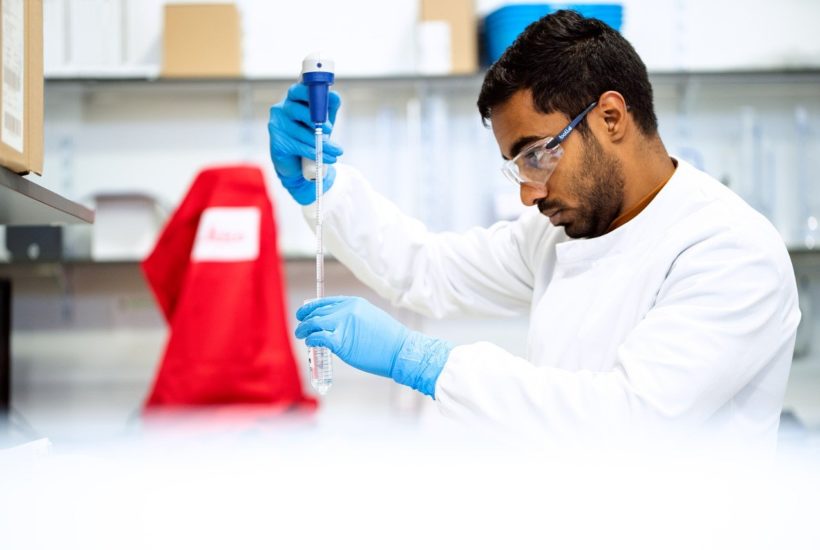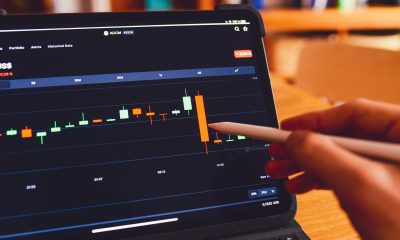Africa
The biomedical research sector in Rabat is in full development
The Council of Government adopted last Thursday, March 4th, in Rabat, a draft decree on the implementation of the provisions of Law No. 28-13 on the protection of persons participating in biomedical research. This text, which will be followed by other decrees, kick-starts the creation of a real drug industry in Morocco.

Morocco is embarking on a new challenge! It is that of making biomedical research a real lever of economic development capable of propelling the national pharmaceutical industry from its current stage of “shaper” to that of innovator. During the presentation of the initiative, Anass Doukkali, then Minister of Health, considered that “conditions in the country are favorable.”
Read more about the pharmaceutical industry in Morocco and find other important business news with the Born2Invest mobile app.
Favorable conditions
The specialized national human and material resources, present in the nine hospital centers and the 14 universities, with more than 2,000 teacher-researchers, are ready to take up this challenge. The other public and private hospital structures can also lend a hand in clinical and epidemiological research. In addition, there are also the physicians practicing in the kingdom: their number (25,000 in 2017) constitutes a real potential of investigators that the health system can count on to develop a genuine and continuous national biomedical research. But there is also a very structuring factor: since 2016, the government has launched, as part of the Industrial Acceleration Plan (PAI), a project to create ecosystems in pharmaceutical research.
Ecosystems aimed in particular at strengthening the development of generics, biosimilars, medical devices and biomedical research. This strategy, for which the LEMM (the association that brings together the drug companies in Morocco) had proposed 68 recommendations, provides incentives, legislative, economic and training measures. It aims to position Morocco as an efficient player capable of benefiting from the growth prospects of the drug sector internationally. Indeed, nearly half of the R&D activities of the global pharmaceutical sector is currently outsourced.
A market of $41 billion (370 billion DH)
This represents a market estimated at more than $80 billion (about 800 billion DH), of which more than 46% is allocated to biomedical research. Morocco has therefore decided to position itself in this niche and to develop pharmaceutical R&D projects both at the level of clinical research and outsourcing in preclinical and pharmaco-economic research. Precisely, it is within the framework of the development of clinical research that a major step has just been taken.
Indeed, the Government Council adopted, last Thursday in Rabat, a draft decree relating to the implementation of the provisions of Law No. 28-13 on the protection of persons participating in biomedical research, while taking into account the remark made about it. This draft decree, presented by the current Minister of Health, Khalid Ait Taleb, aims to determine the modalities for collecting and withdrawing consent from persons participating in biomedical research and for recruiting healthy people who lend themselves to biomedical research, in addition to the terms of compensation. The project also establishes the regional committees for the protection of persons participating in biomedical research, their number, territorial jurisdiction and headquarters, and the composition and operating procedures of these committees and the procedures for appointing their members. The text N°2.21.326 also determines the modalities of authorization, suspension and withdrawal of authorizations for biomedical research sites and the modalities of the request for authorization for biomedical research and its modification, in addition to the conditions for carrying out biomedical research.
A promising first decree
Reacting to the good news for which he has invested a lot of time and effort, Professor Farid Hakkou, Secretary General of the Committee of Ethics for Biomedical Research (CERBM), said that “with this new decree and others to come very soon, the world of research in Morocco is entering a new era. Biomedical research at the service of humans, recognized by the European Medicines Agency and the FDA, is now possible in Morocco. These new regulations will provide a framework for clinical trials in our country, in accordance with the rules of good practice. We will now be able to conduct well-managed, ethical and high-quality medical research”.
Regarding patients, subject of the decree, he then added that “Moroccan patients will have early access to medicines and therapeutic innovations. They will also benefit from better use of therapeutic protocols through innovation. Finally, the health infrastructure will host the best equipment and technology necessary for this activity”. And when asked about their safety and protection in the context of clinical trials, he explained that “the regulatory framework will protect patients in the event of accidents and will put in place a safety structure to prevent all risks. In addition, in the event of unexpected incidents, safety measures are taken without authorization and in an emergency. In addition, insurance is guaranteed for patients, defining the terms and conditions of care, within the framework of studies as well as in the event of an accident”.
__
(Featured image by RAeng_Publications via Pixabay)
DISCLAIMER: This article was written by a third party contributor and does not reflect the opinion of Born2Invest, its management, staff or its associates. Please review our disclaimer for more information.
This article may include forward-looking statements. These forward-looking statements generally are identified by the words “believe,” “project,” “estimate,” “become,” “plan,” “will,” and similar expressions. These forward-looking statements involve known and unknown risks as well as uncertainties, including those discussed in the following cautionary statements and elsewhere in this article and on this site. Although the Company may believe that its expectations are based on reasonable assumptions, the actual results that the Company may achieve may differ materially from any forward-looking statements, which reflect the opinions of the management of the Company only as of the date hereof. Additionally, please make sure to read these important disclosures.
First published in LesEco.ma, a third-party contributor translated and adapted the article from the original. In case of discrepancy, the original will prevail.
Although we made reasonable efforts to provide accurate translations, some parts may be incorrect. Born2Invest assumes no responsibility for errors, omissions or ambiguities in the translations provided on this website. Any person or entity relying on translated content does so at their own risk. Born2Invest is not responsible for losses caused by such reliance on the accuracy or reliability of translated information. If you wish to report an error or inaccuracy in the translation, we encourage you to contact us.

-

 Crowdfunding1 week ago
Crowdfunding1 week agoBSG Stahl Riesa Launches Crowdfunding for New Floodlights
-

 Cannabis5 days ago
Cannabis5 days agoSnoop Dogg Searches for the Lost “Orange” Cannabis Strain After Launching Treats to Eat
-

 Crypto2 weeks ago
Crypto2 weeks agoIntesa Sanpaolo Signals Institutional Shift With Major Bitcoin ETF Investments
-

 Cannabis5 hours ago
Cannabis5 hours agoBrewDog Sale Leaves Thousands of Crowdfunding Investors Empty-Handed






















